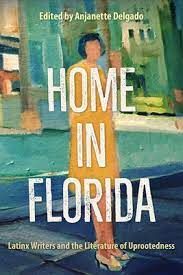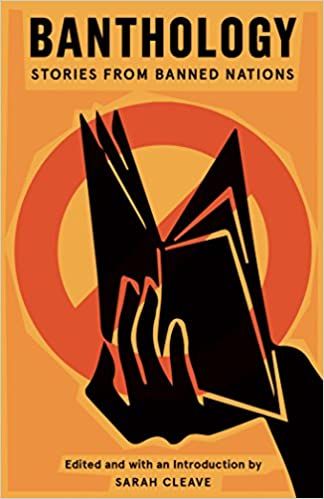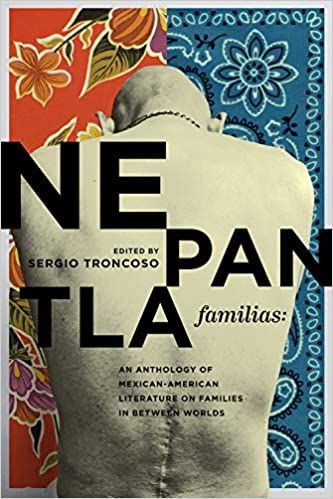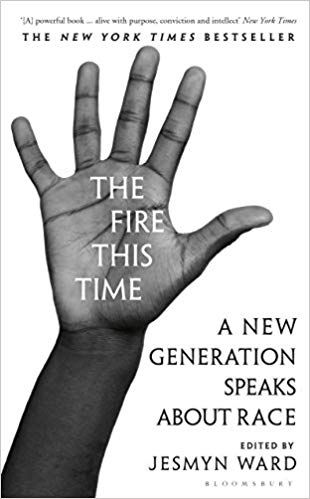It is fair to say however, that recent times have seen an increased representation of more diverse literary landscapes. Compared to even ten or 15 years ago, we are seeing a less superficial intention to invite a variety of cultures and experiences into the publishing world. One of the propellers is the publication of anthologies. Recent years have seen the emergence of collections curated with the intention of becoming vehicles of representation. Whereas anthologies traditionally existed to compile the works of a generation or of a specific literary movement, some anthologies published in the last decade were born to replace flattened definitions of marginalized groups.
Voices That Arrived to the U.S.
Delgado explains uprootedness as “a constellation in which you can find each immigrant, like a star, closer to or farther from home, occupying its own dot on the spectrum of belonging.” This uprootedness can also be read in The Displaced: Refugee Writers on Refugee Lives, a collection of essays edited by Viet Thanh Nguyen. Both anthologies reflect on ideas of belonging, identity, and the expectations placed on people who come from somewhere else. Some of the pieces question the unfairness of such expectations, but there is also an invitation to understand those we consider “other” by following the journeys of the authors before and after they get to the U.S. By having a variety of voices share their experiences, anthologies provide an opportunity to remember that there is no one definite description for any group of people. Anthologies also show that there are conversations and collaborations happening all the time among groups that do not have as much visibility as they should. The essays in The Displaced are beautifully crafted to expand on definitions we thought we knew. This collection reminds us, as explained by Thanh Nguyen, that it is not that there are people who are voiceless: “many of the voiceless are actually talking all the time. They are loud, if you get close enough to hear. The problem is that much of the world does not want to hear…”
Voices From Far Away
When thinking back on my first joys of reading, it all started with wanting to read stories that transported me to places, imaginary or real, that I would otherwise not have been able to visit. I loved, and still do, reading a story that allows me to see the world in a way I had not imagined. I often buy books by authors I know nothing about and find joy in discovering a good book I didn’t know existed. Learning about literary styles and movements emerging in places far away is one of my favorite things to do. More than anything, reading authors from cultures that seem to be distant or different shows me how connected we really are.
Voices From Here
There are many ways in which one can be considered “other.” “Other” could be someone not born in the U.S., an immigrant, refugee, someone passing by. But “other” can also be people from this country, who due to prevalent racism, classism, and other systems that foster inequality, have lives and experiences that society is only now beginning to recognize as part of the overall narrative of the U.S. Providing a platform for these voices is another role of anthologies. Anthologies have also become vehicles to challenge definitions of what it means to be from here. “Nepantla Familias is at the heart an anthology about empathy,” said Troncoso. This empathy, experiencing of the feelings, thoughts, or attitudes of another, is a recurrent objective of contemporary anthologies. Due to underrepresentation, we find ourselves with much to learn about our own communities and the various groups that make and enrich them. The Fire This Time: A New Generation Speaks about Race looks at racism in the U.S. in the face to question the condition of “otherness” imposed on Black people in their own country. In response to recent tragedies and widespread protests across the nation, Jesmyn Ward looked to James Baldwin’s The Fire Next Time for comfort and counsel. The result is a beautifully curated collection that includes essays, memoirs, and poems that address the reality of prevailing racism in the U.S. This book offers an opportunity to acknowledge that “the idea that we are living in the post-civil rights era — that we are a ‘postracial’ society — is a callous corruption of a truth that our nation must confront.” The book asks readers from any background, whether they are Mexican American or not, “to see these writers as individuals, to see the characters they have created not as caricatures, but as complex characters. This book is a call to action to open your minds, to take the time to open your hearts, and to meet in the complex and ever-questioning middle ground of Nepantla.” The essays, poems, and short stories explore the in-between moments in Mexican American life — the family dynamics of living between traditional and contemporary worlds, between Spanish and English, between cultures with traditional and shifting identities. The etymology of the word “anthology” is Greek. Anthologic literally means “a collection of blossoms.” The collections listed in this essay address the issue of limited representation of diverse voices in the literary world. They are projects that are changing the cultural role of anthologies by showing us that the voices are there if we want to listen. The writers included in these books are loud, as they need to be, and what they are saying marks the rhythm of our pulse. These blossoms are already dropping seeds, already changing the landscape, changing the view from our windows no matter how close or far we are from what they show. The collective of voices in an anthology is evidence of the variety of experiences that are otherwise often oversimplified or reduced to stereotypes. They allow us to expand our understanding of experiences we may never face, but that are important to recognize. Claudia Rankine, another writer included in The Fire This Time, reminds us that “there really is no mode of empathy that can replicate the daily strain of knowing that as a black person you can be killed for simply being black: no hands in your pockets, no playing music, no sudden movements, no driving your car, no standing here, no standing there, no playing with toy guns, no living while black.” Anthologies provide an invitation to see and redefine our understanding of concepts we think we know through a variety of pieces and voices.



